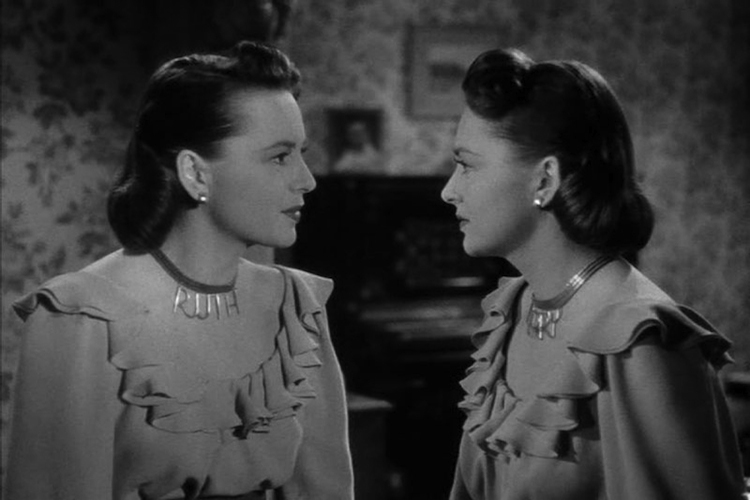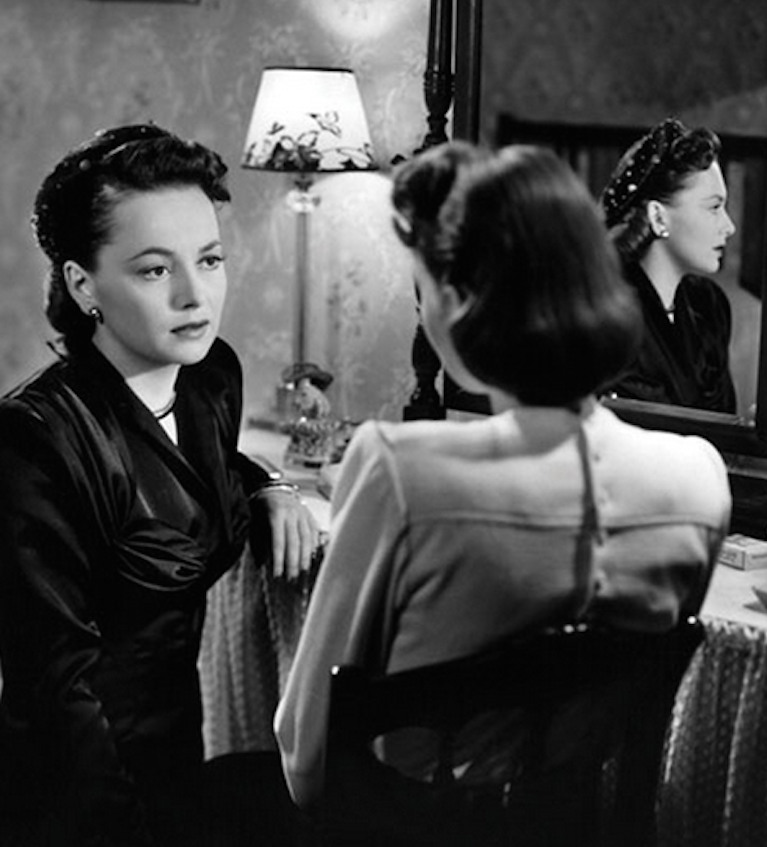Olivia @ 100: The Dark Mirror
 Monday, June 20, 2016 at 7:00PM
Monday, June 20, 2016 at 7:00PM We're counting down to Olivia de Havilland's historic 100th birthday (July 1st!). Team Experience will be looking at highlights and curiosities from her career. Here's Jason...
I'm proud of my fellow Film Experience members Dan and Josh for keeping their focus on the films so far in this series, but it seems kind of impossible to talk about Olivia de Havilland's 1946 thriller The Dark Mirror, which has her playing good and evil twins, without diving into the gossipy froth of her legendary lifetime rivalry with sister Joan Fontaine. The Dark Mirror sits somewhere between an exorcism and a single-gloved slap-fight - Fight Club via Film Noir. It offered Olivia the chance to play versions of both her and her sister's popular images, exaggerated and unloosed upon one another.

In a 2015 Time magazine piece on the sisters' feud it's said that Olivia was known for playing "pretty and charming, naïve" (like Melanie in Gone With the Wind) while Joan's roles were more "moody, intuitive and emotional." (Think the second Mrs. de Winter in Rebecca.) Those broad descriptions fit the broad characters of Terry and Ruth Collins to a tee -- one's a suspected murderess, coarse and vulgar but forthright, while the other is noble and suffering do-gooder who seems to be allowing her sister to walk all over her and orchestrate a cover-up. But which is which (and who'll win that damn Oscar???)
To her profound credit de Havilland clearly relishes tearing into both roles and complicates the "good" and "bad" aspects of both women every chance that she gets - the real tragedy by the film's end is seeing what made the two women so unique begin to dissolve away, swap out. Early on, showing exquisite control over her body language and voice, de Havilland manages to make it clear which sister is which even beyond the aid of the oft black/white costuming.
 But even more impressively as the film progresses and the sisters start playing each other she makes Ruth-by-Terry and Terry-by-Ruth their own creations, allowing each sisters' perspective on the other poke out from underneath. We can always tell who's in control...
But even more impressively as the film progresses and the sisters start playing each other she makes Ruth-by-Terry and Terry-by-Ruth their own creations, allowing each sisters' perspective on the other poke out from underneath. We can always tell who's in control...
...until we can't. Not to spoil anything but there is a moment where the mirror cracks and the film upends our understanding of who's who and who's doing what, the violence of the moment hinging entirely on de Havilland's performance, and it's a corker. And sure, I can only conjecture, but it seems that this sort of performance-playing with public versus private personae might've been informed by being one-half of an Oscar-winning sister duo bobbing along on the top of the world. And come with the scars to prove it.


